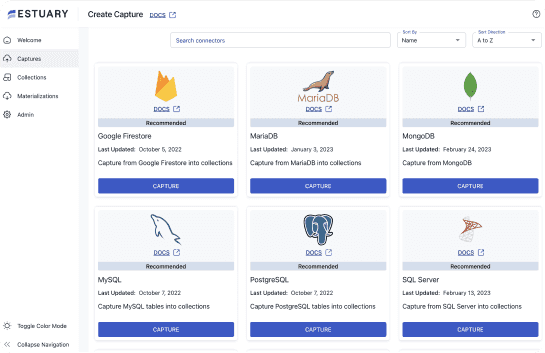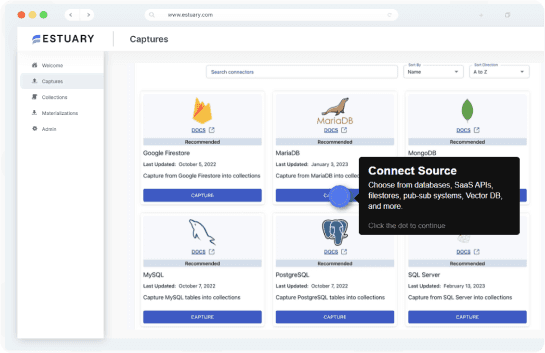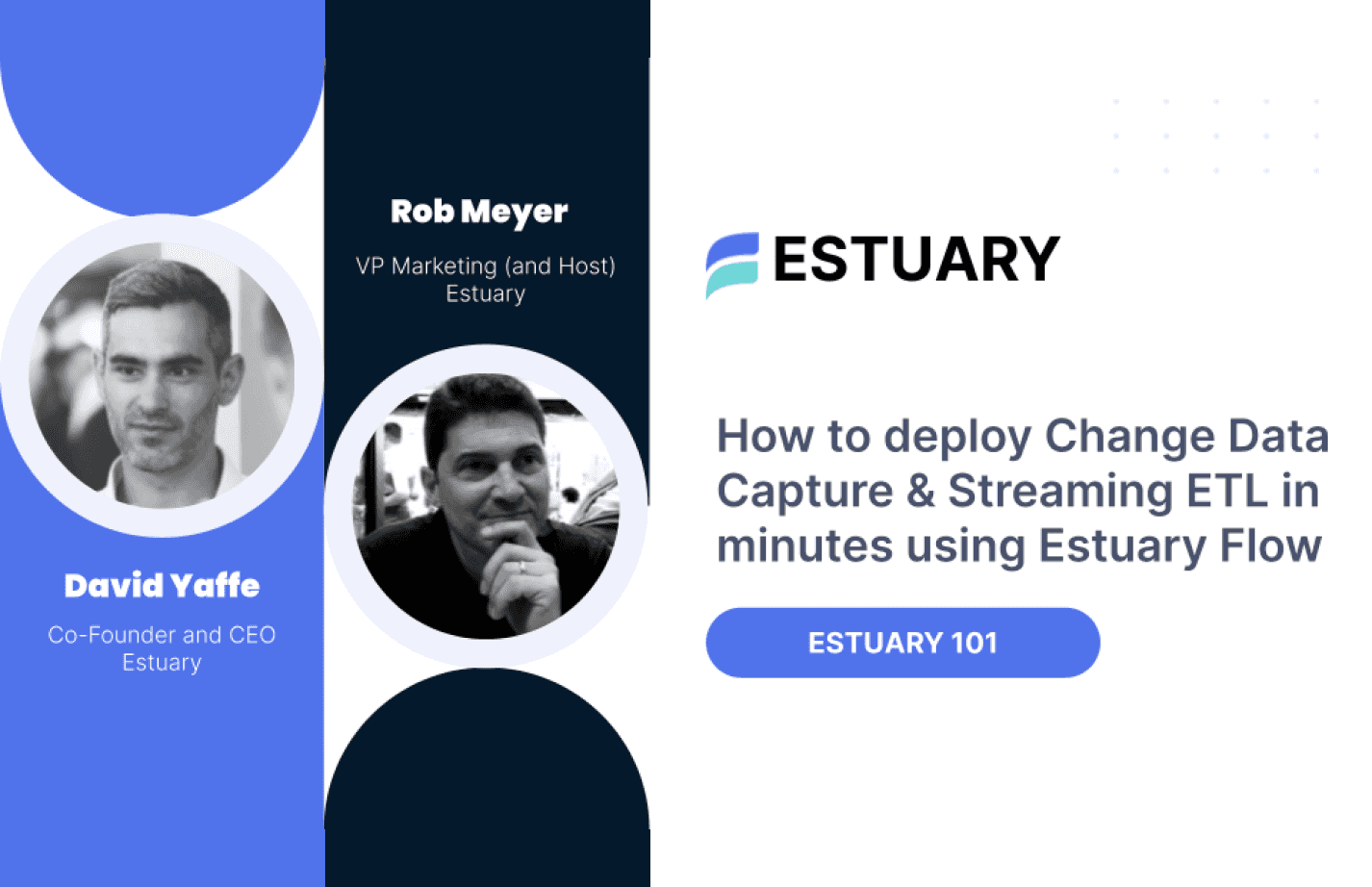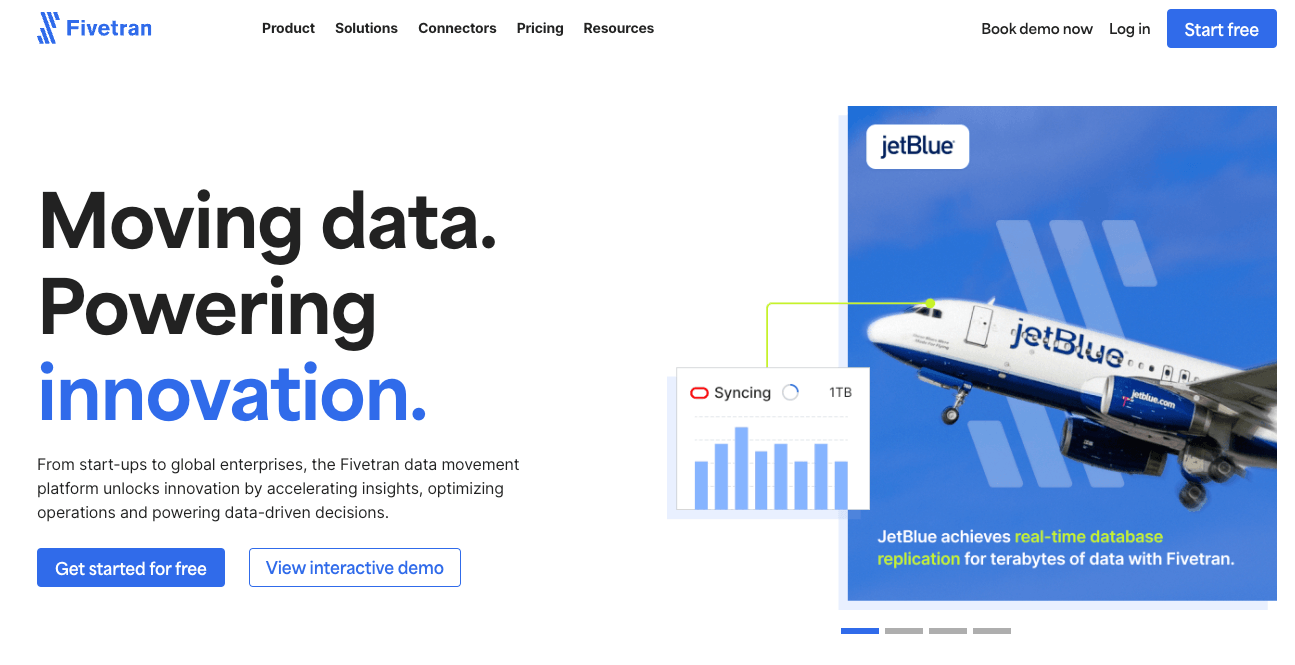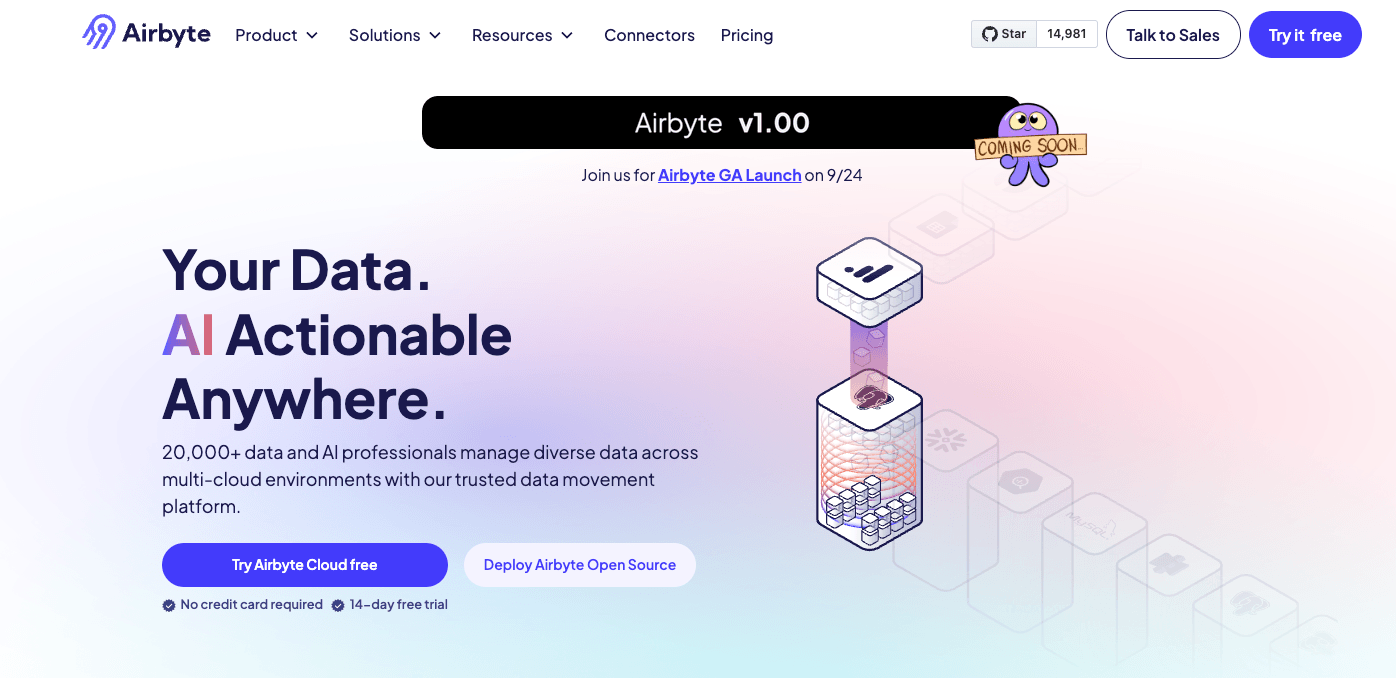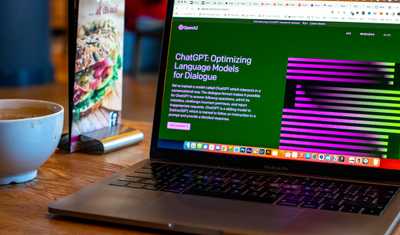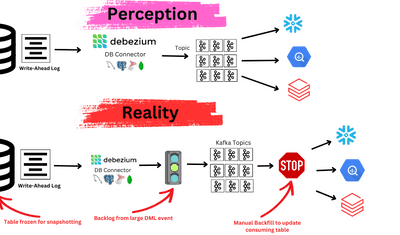
As businesses scale and their data demands evolve, choosing the right data integration tools becomes critical. Talend, known for its robust features and enterprise-grade solutions, has long been a popular choice for data integration. However, its steep learning curve, higher costs, and certain limitations have prompted many organizations to seek more tailored alternatives.
This article highlights the top 7 Talend alternatives in 2025, showcasing data integration tools that offer advanced features, enhanced scalability, and flexibility to meet the dynamic needs of modern businesses.
Talend Overview
Talend is a unified data management platform that combines robust capabilities for data integration, data quality, data governance, and API management into a single, comprehensive solution. As a Qlik company, Talend is designed to empower organizations with actionable insights by ensuring data integrity, accessibility, and usability at every step of the data lifecycle. Its modular design supports diverse deployment models, including cloud, on-premises, and hybrid environments, catering to a wide range of business needs.
Key Features of Talend
- Comprehensive Data Integration: Supports ETL, ELT, and streaming workflows to collect, transform, and map data from various sources into usable formats.
- Real-Time Capabilities: Offers Change Data Capture (CDC) and streaming integration for real-time replication and updates.
- Data Quality Management: Provides automated data profiling, cleansing, and validation to ensure consistent and trustworthy data.
- Talend Trust Score™: A proprietary feature that assesses the reliability and quality of datasets in real-time, helping organizations make data-driven decisions confidently.
While Talend is a robust platform, it does have certain limitations that may prompt businesses to explore alternatives. Its batch-oriented workflows may not meet the needs of organizations requiring real-time data integration and sub-second latency. Additionally, the platform's steep learning curve and higher costs for advanced features make it less accessible for small to medium-sized businesses or teams with limited technical expertise. Talend’s reliance on traditional deployment models and public cloud solutions can also restrict flexibility in certain use cases.
7 Best Talend Alternatives 2025
Let’s look at the top 7 Talend Competitors:
1. Estuary Flow
Estuary Flow is a cutting-edge real-time data integration platform designed for modern streaming and batch workflows. Built from the ground up for Change Data Capture (CDC) and event-driven architectures, it supports low-latency, exactly-once delivery across various sources and destinations. Estuary Flow simplifies the creation and management of pipelines, making it an ideal solution for businesses looking to integrate data for analytics, operations, and AI applications seamlessly.
With no-code connectors and robust support for real-time transformations, Estuary Flow provides unmatched flexibility and scalability. It’s particularly well-suited for businesses with dynamic data environments and those requiring sub-second latency for decision-making.
Some Key Features of Estuary Flow:
- Real-Time CDC: Always-on CDC ensures accurate and timely replication with exactly-once semantics.
- Private Deployments: Offers deployment flexibility in private or hybrid networking environments, catering to security-conscious enterprises without sacrificing performance.
- No-Code Connectors: Pre-built connectors for popular databases, cloud applications, and data warehouses reduce setup time and complexity.
- In-Flight Transformations: Supports real-time data transformation using SQL, TypeScript, or APIs to meet complex business needs.
- AI Integration: Provides native support for vector databases like Pinecone and facilitates generative AI workflows with integrated data pipelines.
- Scalable Architecture: Handles large-scale data operations with ease, ensuring low latency and reliable performance for enterprises.
Pricing
Estuary Flow offers a simple, predictable pricing model:
- $0.50 per GB of data moved.
- $100 per connector per month.
This transparent structure makes it a cost-efficient solution for businesses managing both small and large-scale data workflows. Its competitive pricing, coupled with its real-time capabilities, positions Estuary Flow as a leading choice for companies seeking Talend alternatives.
2. Fivetran
Fivetran is a fully managed ELT (Extract, Load, Transform) platform designed to simplify data integration for businesses of all sizes. Known for its extensive library of connectors and automated maintenance, Fivetran eliminates much of the complexity of managing data pipelines. It focuses on extracting data from diverse sources and loading it into cloud data warehouses with minimal user intervention.
As an alternative to Talend, Fivetran offers a hands-off approach, making it ideal for organizations seeking automation and reliability in their data integration workflows. However, its reliance on batch processing and a pricing model based on Monthly Active Rows (MAR) may not align with the needs of businesses requiring real-time or cost-efficient solutions.
Some Key Features of Fivetran:
- Extensive Connector Library: Supports over 300 pre-built connectors for databases, SaaS platforms, and cloud applications, catering to a wide range of integration needs.
- Schema Evolution: Automatically updates pipelines to adapt to changes in source schemas without manual adjustments.
- Incremental Data Loading: Extracts only changed data to minimize load times and optimize efficiency.
- Fully Managed Service: Handles maintenance, updates, and scaling, allowing businesses to focus on data analysis rather than pipeline management.
- Reliability and Security: Built for enterprise-grade reliability with compliance standards like SOC 2, GDPR, and HIPAA.
Pricing
Fivetran’s pricing is based on Monthly Active Rows (MAR):
- Starts at approximately $1,000 per month for 2M MARs.
- Costs increase significantly for higher volumes or frequent refresh intervals, with some deployments reaching six figures annually.
- Additional costs apply for reducing latency below the default one-hour batch intervals.
Fivetran is well-suited for businesses prioritizing automation and ease of use, but its high costs and batch-only processing make it less ideal for real-time needs compared to platforms like Estuary Flow.
Also Read: Fivetran Alternatives
3. Informatica
Informatica is a comprehensive data integration platform tailored for large enterprises with complex workflows. It offers advanced capabilities in data governance, master data management, and real-time integration, making it a powerful alternative to Talend. Informatica’s hybrid deployment model allows businesses to operate in cloud, on-premises, and multi-cloud environments, providing flexibility for diverse organizational needs.
Designed to handle enterprise-scale data operations, Informatica supports batch and streaming workflows while ensuring compliance with industry standards. Its robust feature set makes it a preferred choice for industries like finance, healthcare, and retail, where data integrity and security are critical.
Some Key Features of Informatica:
- Comprehensive Data Management: Includes tools for data integration, data quality, data governance, and master data management to create a unified view of organizational data.
- Real-Time Data Integration: Supports real-time data ingestion and Change Data Capture (CDC), ensuring fresh and accurate data for analytics and operations.
- Advanced Transformation Capabilities: Enables complex in-flight transformations for analytics-ready data without additional post-load processing.
- Hybrid and Multi-Cloud Deployment: Offers deployment flexibility, supporting cloud-native, on-premises, and hybrid models to suit diverse infrastructure requirements.
- Scalability and Reliability: Handles large datasets with high throughput, ensuring performance consistency for enterprise workloads.
Pricing:
Informatica uses a consumption-based pricing model, with costs determined by:
- Compute units used for data processing.
- Additional fees for advanced features like real-time CDC.
Pricing requires a custom quote and is typically higher than most alternatives, reflecting its enterprise-grade capabilities. While Informatica is ideal for businesses with large-scale and complex data needs, its cost structure may not suit smaller organizations or those with budget constraints.
4. Airbyte
Airbyte is an open-source ELT (Extract, Load, Transform) platform that has quickly gained popularity for its flexibility, community-driven approach, and affordability. Launched in 2020, Airbyte provides businesses with the ability to customize data pipelines while maintaining control over their infrastructure. Its open-source nature makes it a cost-effective alternative to Talend, particularly for organizations with in-house technical expertise.
While Airbyte excels in flexibility and connector coverage, its reliance on batch-based data integration and limited scalability for larger workloads can be a drawback for organizations requiring real-time or high-throughput capabilities.\
Some Key Features of Airbyte:
- Open Source and Customizable: Allows businesses to self-host pipelines, modify workflows, and extend capabilities to meet unique requirements.
- Extensive Connector Library: Offers over 300 connectors, including actively maintained sources by Airbyte and community-contributed connectors.
- Batch-Based Data Integration: Supports incremental and CDC-based replication using tools like Debezium, with batch intervals starting from 5 minutes.
- Octavia CLI for DataOps: Offers a command-line interface to manage pipelines, enabling integration into existing DataOps workflows.
Pricing:
Airbyte employs a volume-based pricing model:
- Starts at $10 per GB of data moved for databases and $15 per million rows for APIs or custom sources.
- Volume discounts are available for larger workloads.
- While Airbyte’s pricing is attractive for small to medium-sized businesses, it becomes less cost-effective for organizations handling high data volumes or requiring real-time updates.
Airbyte is a strong choice for technical teams seeking an open-source alternative to Talend, offering customization and cost advantages. However, for real-time workflows or enterprise-scale needs, tools like Estuary Flow or Informatica may be more suitable.
Also Read: Airbyte Alternatives
5. Hevo Data
Hevo Data is a no-code data integration platform designed to streamline ETL, ELT, and Reverse ETL workflows. Its intuitive interface, real-time streaming, and focus on automation make it a strong alternative to Talend for businesses seeking simplicity and quick deployment. Hevo caters to small and medium-sized organizations with straightforward data integration needs.
Some Key Features of Hevo Data:
- No-Code Data Integration: Build and manage pipelines with an intuitive drag-and-drop interface, making it accessible to non-technical users.
- Real-Time Data Streaming: Ensure up-to-date systems with real-time processing capabilities for low-latency workflows.
- Extensive Connector Library: Access 150+ pre-built connectors for databases, SaaS platforms, and cloud storage solutions.
Pricing
- Free Plan: For basic integrations and small-scale needs.
- Starter Plan ($239/month): Covers 5 million rows and 150+ connectors.
- Business Plan (Custom Pricing): Designed for enterprises requiring advanced compliance and scalability.
Also Read: Hevo Data Alternatives
6. Rivery
Founded in 2019, Rivery is a modern data integration platform offering ELT, Reverse ETL, and orchestration capabilities in a single public cloud SaaS solution. It supports pre-built workflows, custom transformations, and multi-destination loads, making it a flexible choice for businesses aiming to simplify their data integration strategies. However, its batch-oriented design and focus on public cloud-only environments may limit its appeal for certain use cases.
Rivery combines automation with ease of use, delivering "data kits" for ready-to-use pipelines and supporting inline Python and SQL transformations. While it includes some real-time capabilities, such as CDC extraction, its reliance on batch processing for loading data into destinations makes it better suited for less time-sensitive applications.
Some Key Features of Rivery:
- Data Workflows and Orchestration: Rivery enables users to build complex workflows with graphical tools, allowing better automation and scheduling of tasks.
- Flexible Transformations: Supports Python (ETL) and SQL (ELT) transformations, with multiple update-in-place options like switch-merge and delete-merge.
- Reverse ETL Support: Helps push data back into operational tools for enriched analytics and better business outcomes.
Pricing
Rivery uses a credit-based pricing model:
- Starter Plan: $0.75 per credit with 60-minute minimum batch intervals.
- Professional Plan: $1.25 per credit with 15-minute batch intervals.
- Enterprise Plan: Custom pricing with 5-minute batch intervals.
Each credit corresponds to 100MB of moved data or one API call. While cost-effective for small-scale operations, it becomes less competitive for larger volumes, especially beyond 20GB per month.
Also Read: Rivery vs Estuary Flow
7. Matillion
Matillion is a cloud-native ETL platform specifically designed to work within cloud data warehouses like Snowflake, Amazon Redshift, and Google BigQuery. With its robust data transformation capabilities and intuitive user interface, Matillion is a leading Talend alternative for businesses seeking scalable and efficient solutions for data integration and analytics. Matillion simplifies complex transformations directly within data warehouses, allowing businesses to extract maximum value from their datasets.
Matillion focuses on optimizing data pipeline performance with built-in scheduling, monitoring, and collaborative tools, making it a top choice for enterprises managing large-scale data workloads in the cloud.
Some Key Features of Matillion:
- Cloud-Native ETL: Fully optimized for cloud platforms like Snowflake, Redshift, and BigQuery, enabling low-latency data transformations.
- Advanced Transformations: Provides tools for creating complex workflows and preparing data directly within cloud data warehouses for analytics.
- Scalability: Handles enterprise-level data volumes with ease, making it ideal for businesses managing high-throughput workloads.
Pricing
Matillion’s pricing is credit-based, starting at $1,000 per month for 500 virtual core hours. Costs increase with advanced features and enterprise requirements, making it better suited for organizations with significant data transformation needs and budgets. Smaller teams may find it less cost-effective compared to other Talend alternatives.
Also Read: Matillion alternatives
Conclusion
Selecting the right data integration platform is crucial for businesses to streamline workflows and gain actionable insights. While Talend offers robust features, its batch-oriented workflows and pricing often lead organizations to explore alternatives. This guide highlights seven top Talend alternatives, including Estuary Flow for real-time CDC, Matillion for cloud-native ETL, and Airbyte for open-source flexibility. Platforms like Fivetran, Hevo, Rivery, and Informatica offer unique capabilities tailored to various needs.
Consider your specific requirements, such as real-time processing, scalability, and cost-efficiency, to choose the best solution. For real-time and flexible workflows, Estuary Flow is a standout option. Try Estuary Flow today to transform your data integration processes.
Suggested Read

About the author
With over 15 years in data engineering, a seasoned expert in driving growth for early-stage data companies, focusing on strategies that attract customers and users. Extensive writing provides insights to help companies scale efficiently and effectively in an evolving data landscape.

